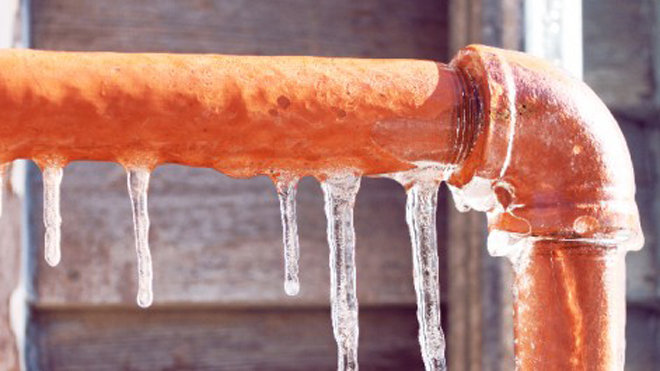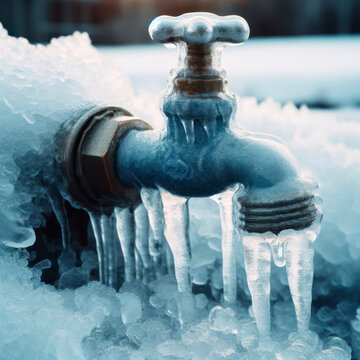How to Avoid Frozen Pipes in Winter: Expert Guidance
How to Avoid Frozen Pipes in Winter: Expert Guidance
Blog Article
What are your opinions about Winter Plumbing Precautions: Preventing Frozen Pipes?

Cold weather can damage your plumbing, particularly by freezing pipes. Here's how to stop it from taking place and what to do if it does.
Intro
As temperature levels decrease, the risk of icy pipelines boosts, potentially leading to pricey repair services and water damage. Recognizing exactly how to prevent icy pipes is essential for home owners in chilly climates.
Comprehending Frozen Pipelines
What causes pipelines to freeze?
Pipelines ice up when subjected to temperatures listed below 32 ° F (0 ° C) for prolonged periods. As water inside the pipelines freezes, it expands, putting pressure on the pipe wall surfaces and potentially creating them to burst.
Threats and damages
Icy pipes can bring about supply of water disturbances, residential property damage, and costly repair work. Burst pipes can flood homes and trigger considerable architectural damage.
Signs of Frozen Piping
Identifying frozen pipes early can stop them from rupturing.
How to determine icy pipes
Look for decreased water circulation from faucets, uncommon odors or sounds from pipelines, and visible frost on subjected pipelines.
Avoidance Tips
Insulating at risk pipelines
Wrap pipes in insulation sleeves or utilize warm tape to safeguard them from freezing temperature levels. Concentrate on pipelines in unheated or exterior areas of the home.
Heating strategies
Keep interior rooms sufficiently heated up, especially locations with pipes. Open cupboard doors to enable warm air to circulate around pipes under sinks.
Securing Outside Plumbing
Garden pipes and outdoor taps
Separate and drain yard hoses before winter months. Install frost-proof faucets or cover exterior faucets with protected caps.
What to Do If Your Pipelines Freeze
Immediate activities to take
If you believe icy pipes, maintain faucets open to ease pressure as the ice thaws. Use a hairdryer or towels soaked in warm water to thaw pipes gradually.
Long-Term Solutions
Architectural changes
Think about rerouting pipes far from outside wall surfaces or unheated locations. Add additional insulation to attic rooms, basements, and crawl spaces.
Upgrading insulation
Buy premium insulation for pipes, attics, and wall surfaces. Correct insulation assists maintain regular temperature levels and minimizes the risk of frozen pipes.
Verdict
Protecting against icy pipes calls for positive actions and quick responses. By recognizing the causes, indicators, and preventive measures, homeowners can secure their pipes during cold weather.
Helpful Tips to Prevent Frozen Pipes this Winter
UNDERSTANDING THE BASICS: WHY PIPES FREEZE AND WHY IT’S A PROBLEM
Water freezing inside pipes is common during the winter months, but understanding why pipes freeze, and the potential problems it can cause is crucial in preventing such incidents. This section will delve into the basics of why pipes freeze and the associated problems that may arise.
THE SCIENCE BEHIND FROZEN PIPES
When water reaches freezing temperatures, it undergoes a physical transformation and solidifies into ice. This expansion of water as it freezes is the primary reason pipes can burst. As the water inside the pipe freezes, it expands, creating immense pressure on the walls. If the pressure becomes too great, the pipe can crack or rupture, leading to leaks and water damage.
FACTORS THAT CONTRIBUTE TO PIPE FREEZING
Low Temperatures: Extremely cold weather, especially below freezing, increases the risk of pipes freezing. Uninsulated or Poorly Insulated Pipes: Pipes located in unheated areas, such as basements, crawl spaces, or attics, are more prone to freezing. Insufficient insulation or lack of insulation altogether exacerbates the problem. Exterior Wall Exposure: Pipes running along exterior walls are susceptible to freezing as they encounter colder temperatures outside. Lack of Heating or Temperature Regulation: Inadequate heating or inconsistent temperature control in your home can contribute to frozen pipes. PROBLEMS CAUSED BY FROZEN PIPES
- Pipe Bursting: As mentioned earlier, the expansion of water as it freezes can cause pipes to burst, resulting in significant water damage.
- Water Damage: When pipes burst, it can lead to flooding and water damage to your property, including walls, ceilings, flooring, and personal belongings.
- Structural Damage: Prolonged exposure to water from burst pipes can compromise the structural integrity of your home, leading to costly repairs.
- Mold and Mildew Growth: Excess moisture from water damage can create a favorable environment for mold and mildew growth, posing health risks to occupants.
- Disrupted Water Supply: Frozen pipes can also result in a complete or partial loss of water supply until the issue is resolved.
WHY CERTAIN PIPES ARE MORE PRONE TO FREEZING
- Location: Pipes located in unheated or poorly insulated areas, such as basements, crawl spaces, attics, or exterior walls, are at higher risk of freezing.
- Exterior Pipes: Outdoor pipes, such as those used for irrigation or exposed plumbing, are particularly vulnerable to freezing as they are directly exposed to the elements.
- Supply Lines: Pipes that carry water from the main water supply into your home, including the main water line, are critical to protect as freezing in these lines can affect your entire plumbing system.
- Underground Pipes: Pipes buried underground, such as those connected to sprinkler systems or outdoor faucets, can be susceptible to freezing if not properly insulated.
https://busybusy.com/blog/helpful-tips-to-prevent-frozen-pipes-this-winter/

Do you appreciate more info about Prevent Frozen Pipes ? Try leaving a review down below. We will be pleased to listen to your thoughts about this review. We are looking forward that you come back again before long. Loved our write-up? Please quickly share it. Let another person check it out. Thanks so much for going through it.
Call Today Report this page